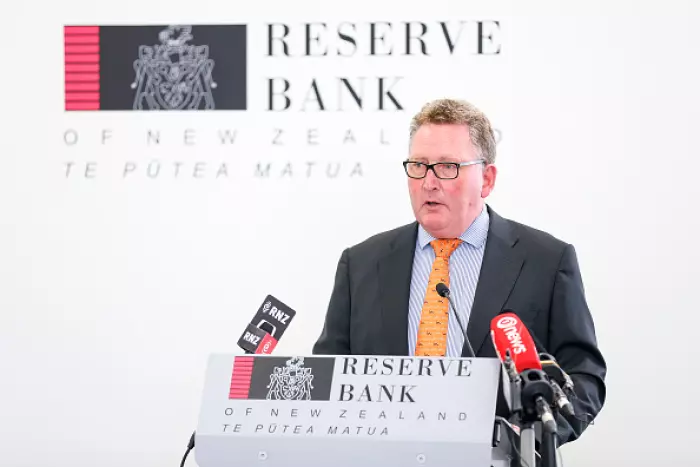Summary: All eyes are on Reserve Bank for its rate hike decision at 2pm. Economists see a 25 basis point hike to 0.75% as a sure thing and markets see a 40% chance of a 50 basis point hike.
Brace for it Currency, interest rate and stock investors alike are on tenterhooks ahead of the Reserve Bank’s 2pm announcement of its last interest rate decision for the year and the release of its last quarterly Monetary Policy Statement until Feb 23, including its latest forecast for the economy and the Official Cash Rate. Financial markets are pricing in a 40% chance of a 50 basis point hike to 1.0%, while economists are unanimous that a 25 basis point hike is more likely, albeit with the caveat a bigger one could be justified to fight an annual inflation rate expected to surge over 5% next year.
So how high? Traders will jump straight to the Reserve Bank’s projections for the OCR over the next three years. Its August MPS forecast a peak of 2.14% by Sept 2024 and a rise to 1.62% by the end of next year. Economists see that track being lifted well over the ‘neutral’ level of 2% by the end of next year, with some forecasting a rise in 2023 towards 3%.
Turning off the tap ANZ joined Kiwibank and BNZ yesterday in restricting access to high loan-to-value lending. The country’s biggest mortgage lender said it was “pausing” some low-deposit applications. BNZ stopped new loans for borrowers with a deposit of less than 20% on Friday and last week Kiwibank withdrew pre-approvals for some high LVR loans. (Stuff)
Less oil reserves The US released 50m barrels of oil from its strategic petroleum reserve in a concerted dump of strategic reserves onto the market with China, India, South Korea, Japan and the UK to drive down oil prices. But the US release was only worth 2.5 days of supply and West Texas oil prices rose 1.8% to US$77.80/barrel this morning because traders had expected more and OPEC+ threatened to respond by restricting output.
Nasdaq most exposed US tech stocks fell about 1.4% this morning and the US 10-year bond yield rose to a one-month high of 1.65% on expectations the reappointment of US Federal Reserve Chair Jerome Powell signalled faster and larger interest rate hikes from the world’s biggest central bank from mid-2022.
Elsewhere overnight in global markets, corporate news and economic news:
- Countdown announced all its staff would have to be double vaccinated, which contrasts with Pak’n’Save and New World owners in the Foodstuffs group, who have not agreed on a stance;
- US President Joe Biden, 79, pledged to run for a second term in 2024 after a fall in his approval ratings and after some Democrats had begun wondering whether he would (or should) run again;
- Germany’s covid infection rate surged to a record high as the United States advised against travelling there;
- Turkey’s lira fell 15% after President Recep Tayyip Erdogan praised a rate cut in the face of rampant inflation by declaring an “economic war of independence.”
Fresh from BusinessDesk’s correspondents this morning:
- Jenny Ruth takes a closer look at Ryman Healthcare’s capital strategy;
- Daniel Dunkley reports on Facebook’s efforts in NZ to recruit influencers to combat misinformation;
- David Chaplin finds almost 80% of adults now have KiwiSaver accounts; and,
- Rebecca Howard looks at whether NZ could become a shipping hub in a ‘Southern Link’ between Southeast Asia and Latin America.
In case you missed it from yesterday:
- The govt tabled its covid-19 vaccination mandate legislation that could cover up to 70% of workers;
- Opposition Leader Judith Collins called for an immediate reopening of the trans-Tasman travel bubble for double-jabbed travellers;
- The Reserve Bank launched a consultation on debt-to-income (DTI) multiple limits and an interest rate serviceability floor for home buyers, saying it currently preferred the floor initially, and then the DTI limit;
- The He Waka Eke Noa industry consultation group published an options paper for pricing farm emissions that included two options that would reduce emissions by less than 1%; and,
- Arvida reported a 30% profit rise because of property revaluations higher.






